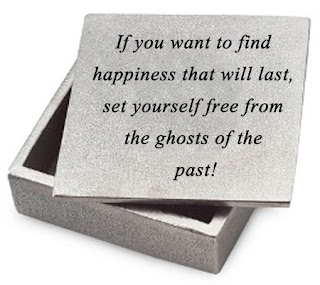It was 16 October 2012 morning; Anil sir started the
leadership class by asking “What is the most important question in each of our lives?”
As we were pondering over the question
and wondered how we would achieve our goals even if we figured what bothered us
the most, Anil sir, showed us the way by asking six more questions which helped
us to frame the strategy, define path, create alternatives, define logic,
consider values & trade offs and finally implement the idea into action.
Personally it created a positive impact in my thinking and approach towards
life. We can use these methods in our daily life to make any major or minor
decisions.
Later, sir discussed four dimensions of creativity. Again,
we were asked to question ourselves about our strengths, weaknesses, best
suited job, our creative hindrances etc. This made me dwell further into my
goals and my personality. We further went on to discuss about how our
creativity gets hampered through the thorough conditioning which we receive
from our childhood. A holistic education with a broad-minded upbringing will
enhance an individual’s creativity, thinking & approach towards life.
We also discussed ‘The five fears’ which stops us from being
true to our self and hinders our self confidence to grow further in life. We
were asked to question ourselves on our fears of failures, our skeptic approach
to try something new, concern for ambiguities, lack of time & resource and
our true passion for nature. All this helped me to understand what actually
stopped me from chasing my goals and what created fear in me to follow my
passion in life.
Later we discussed all the values which are close to our
hearts and the people in our lives who matter the most to us. We also discussed
the seven ladders of inference, our assumptions and biases.
On 22 October 2012, we started our day with an emotional
note as we discussed & celebrated the anniversary of the heroes of 1962,
Major Shaitan Singh and his troops, who sacrificed their lives for the sake of
reinstating freedom and safe haven to our country and its people.
Anil sir shared one of his very interesting and heart
warming personal experience, where his family had struggled through the crucial
times of social turbulence. He spoke about how he realized his inner strength
and courage at the toughest life threatening situation.
We discussed more about courage and how each of us displayed
courage in our lives and realized our hidden intrinsic traits & strengths
which we had never known before. Later we spoke about Happiness and its causes.
We saw a video of Mr. Mathew, a Buddhist monk from France, speaking about
happiness and its underlying perceptions and assumptions. He told that
happiness was something intrinsic and it can be attained by achieving inner peace,
serenity, inner freedom & confidence. To achieve the above said, we should
meditate and be more compassionate towards our self and others. We should
observe our dark clouds of anger evaporate and attain clam and peace.
Later we spoke about the determinants of Happiness which are
mainly the religion, good relationships, thinking style, exercise – Mental &
Physical. Meditation provides mental exercise and rejuvenates our body.
Meditation observes the way we think, either positive or negative.
Anil sir made us practice 15 minutes of meditation in our
class and personally for me, the feeling after meditation was very refreshing,
rejuvenating and serene. I decided to practice meditation and yoga more often
from now on.
Later on, Anil sir explained Immunity X-ray to us where we
had to write down our habits which we feel difficult to change. Sir told us to
confront all the grey areas in us, face the truth and write down everything
which was in our mind. We had to first accept the truth to bring about the
change in us. We realised that unconditional love was the powerful tool which was
within each of us and we have to realise it.


